Public Health Funerals
Information and data about public health funerals
Statutory Duty
We have a duty under Section 46 of the Public Health (Control of Disease) Act 1984 to "cause to be buried or cremated the body of any person who has died or is found to be dead" within the borough of Boston, and where it appears "that no suitable arrangements for the disposal of the body have been or are being made".
People who typically require this type of action are those who die intestate and with no next of kin.
List of public health funerals
The list of public health funerals carried out by Boston Borough Council is in the downloads section.
Under Section 31(1)(a) of the Freedom of Information Act (FoIA), the Council will not disclose details into the public domain where they relate to the address of the deceased. When tracing relatives it may take several months to complete our enquiries. During this time the property of the deceased can remain unoccupied and fully furnished with all their household possessions, papers and personal effects. Even when relatives have been found a property can remain unoccupied for a considerable time afterwards.
Advertising the address would leave the property vulnerable to crime; including anti-social behaviour, criminal damage, arson, identity fraud and the crimes that can be committed using false documents. Therefore, Section 31(1)(a) FoIA (law enforcement - prevention and detection of crime) will be applied to prevent release of any information which would identify the address of the deceased.
National assistance funerals
Who pays for a funeral?
The cost of a funeral is usually met out of the estate of the deceased. If there are insufficient funds the executer is liable. Where the deceased has not left a will the person arranging the funeral (normally their next of kin) is liable to meet the funeral costs.
Our role
For those who have not made arrangements, or have not left the financial resources to pay for their funeral and there are no relatives in a position to make arrangements, then there is a duty for us to bury or cremate the body.
We will seek to recover expenses incurred in connection with the burial or cremation
We normally act on written instructions received from the local coroner's office. However in some instances the managers of residential homes and sheltered accommodation advise of circumstances where a death has occurred and as far as they know there are no relatives or persons able or willing to make the funeral arrangements.
If the death occurs in a hospital the hospital authority is responsible for making arrangements where it appears these are not being made and queries should be addressed to the hospital concerned.
Burial or cremation?
Unless it appears that the deceased would have been against cremation, we will make arrangements for a cremation service with a funeral director.
If the deceased person has left any paperwork, or had previously advised someone with whom we have made contact, that they specifically wanted to be buried, suitable arrangements for burial will be made.
In either case an appropriate ceremony would be arranged (as far as possible) in accordance with the deceased's known beliefs and wishes.
Where details of family or friends are known or found they will be informed of the funeral arrangements.
Getting help to pay for a funeral on a low income
If you are the person responsible for arranging a funeral and are on a low income, a funeral payment can be claimed from the DWP Social Fund if either you or your partner are in receipt of:
- Income Support
- Income-based Jobseeker's Allowance
- Employment and Support Allowance (income-related)
- Pension Credit
- Housing Benefit
- Council Tax Benefit (or the Council Tax payer where you live gets a second Adult Rebate because you are on a low income)
- Working Tax Credit which includes a disability or severe disability element
- Child Tax Credit at a rate higher than the family element
You can apply for this at any time from the date of death up to three months after the date of the funeral. You should receive the necessary cost of specified items or services plus up to £700 for other funeral expenses.
For more information call the DWP bereavement service on 0800 151 2012.
Where appropriate, they can take your Funeral Payment claim over the phone. Alternatively, you can make a written claim by completing form SF200 'Funeral Payments from the Social Fund' which is available from Jobcentre Plus.
Veterans Bereavement Support Service (VBSS)
The Veterans Bereavement Support Service is a not for profit organisation and was created by those who have served in the Armed Forces and Merchant Navy and also for those who serve or have served in the Cadet Forces to ensure that they have full access to a specialist bereavement support network at the time of need for their family and friends.
The VBSS offers a bespoke service for families needing assistance with bereavement and support including advice on funeral care, help with benefits, funeral payments and widow/widower benefits. They also work with families as they cover the complex issues of dealing with Service Pension rights and the complexities of paperwork associated with Wills and Probate.
Telephone 0788900393 or visit their website.




